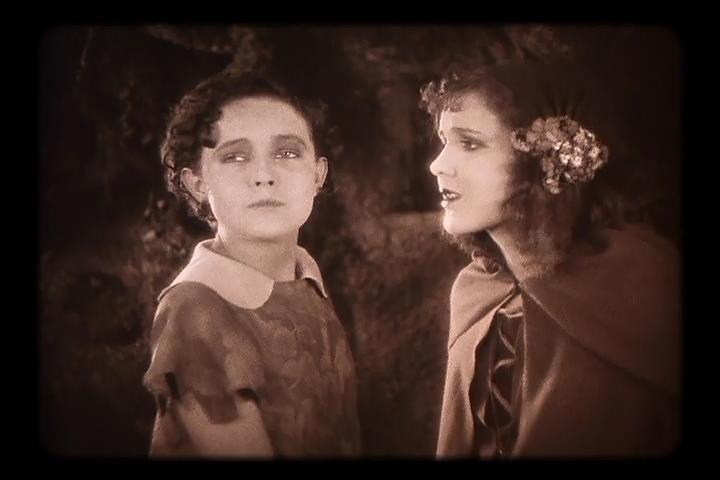Dr.
Jekyll and Mr. Hyde
The sad practical
tale of a society doctor with a ward of charity patients who suffers an
incurable transformation into Fuseli’s nightmare gnome, and this is caused
only incidentally by the formula he brews himself, the real perturbation is his
fiancée.
Peter Pan

“Of course,
it’s frightfully fascinating—”
Brenon has the
fairy dust and a deadpan to pick it up with, too.
“Mr.
Darling was such a fidget”, Hook’s hook, the crocodile and the
clock, Nana the dog who takes care of the children and gives Mr. Darling the
fidgets, the Never Never Land, jealous Tinker Bell...
“We attack
the Lost Boys tonight.”
This is several
kinds of genius, attended to by James Wong Howe and Willis Goldbeck,
even Kubrick’s A Clockwork Orange
peeks in, by way of Pan’s anecdote.
Sublime
determination of Pan, striking a pose, Rimbaud (“Redskins had taken them
in a scream”).
On location
“in Kid’s Creek the Jolly Roger floated immune in the horror of her
name,” with Ernest Torrence as the Captain,
already Batman (dir. Leslie H.
Martinson).
“Are all
the prisoners chained so they can’t fly away?”
An
appeal to the Mermaid Queen.
“I seek the crocodile.”
Gems of Deportment, Captain Hook’s reading matter.
“Proud and
insolent youth, prepare to meet thy fate!”
Mordaunt Hall (New
York Times), “a brilliant and entrancing production... a great credit
to the Famous Players-Lasky Corporation and also to
the whole motion picture industry... a pictorial masterpiece”.
Beau Geste
In the first
movement (Digby), with an adumbration of the Viking funeral, the Blue Water
sapphire is sold.
In the second
(Beau), the duplicate sapphire is stolen as a point of honor.
In the third
(John), it’s returned to England.
The vicissitudes
suffered by the Geste brothers have many echoes in subsequent films.
Brenon is Brenon, his style is unmistakable from the first, a humane
vision of the players later seen in Yates’ The Dresser, a unique practice of camera and lens.
Laugh, Clown, Laugh
Flik, advised by a Roman doctor to treat his melancholy
to the sight of Flik.
Crying jags for
love of a girl who gives a young count pathological laughing fits.
An
Italian film in Brenon’s hands.
The girl was a
foundling, exposed by overburdened parents “for the Saints to take care
of.”
A
very great poem on l’illustrissimo
Flik, later recomposed by Fellini as La Strada.
“Nothing more
than an unimaginative series of scenes” to Mordaunt
Hall of the New York Times, Emil
Jannings and Sybil Thorndike also received bad reviews from him that day,
Adolphe Menjou reigned supreme.